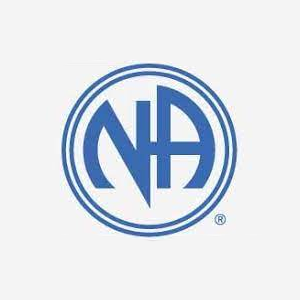Drug & Alcohol Rehab in Crewe

How Does Rehab Work?
Rehab involves many strategies that are designed to address individual addiction with support, wellness methods, and steps to restoring mental health. Clients are introduced to addiction treatment programmes that are led by experienced and professional therapists. Along with therapeutic intervention, individuals can benefit from the support received from certified counsellors and group therapy. While free outpatient services do exist, you can not expect the same level of care as those offered privately. If you decide upon an inpatient rehab programme, it requires that you remain inside the centre or the facility for the duration of treatment. Outpatient services are an option for those with less severe drug or alcohol dependencies. You will meet with a counsellor while attending to work commitments and staying at home.
What Happens During Residential Rehab?
Rehab is the first step towards recovery and sober living. It can be hard to work on quitting addictive behaviours on your own but with the support of professional intervention, a substance free life can be achieved. You may have concerns about the unknown; however, a breakdown of the process can help put your mind at rest.
Rehab occurs in phases. It starts with a medical assessment. Individuals must be professionally assessed to help staff understand the nature of your addiction, its history and comorbid disorders (such as bipolar or depression). The information obtained from the assessment is used to create a unique therapy programme for you. Because every person is unique, a personalised treatment plan will help provide a more tailored programme that meets your needs and requirements.
The next part of treatment is detoxification. Detox assists with the removal of harmful substances within the body. It may be important that it is medically supervised to manage withdrawal symptoms. This is especially true for benzodiazepine and alcohol dependency. The final phase of the programme is the treatment itself (therapy). Individuals can then enter inpatient or outpatient treatment.
While attending rehab patients will receive therapy. Treatment can be delivered on an inpatient or outpatient programme. Therapy ranges from individual counselling including Cognitive Behavioural Therapy, skill-building and group sessions.
1. Assessment

A complete medical assessment is the first step to receiving the appropriate treatment in rehab. If you are looking into inpatient treatment, you can expect a telephone assessment by an admissions team. The telephone assessment will provide the treatment facility with the information needed to develop a unique treatment plan. The medical support staff will also have the information to manage individuals through the process of detox.
Whether you or someone you care about require professional support to overcome substance addiction, it all begins with an individual assessment. Assessments are important to the success of therapy because it determines the type of therapeutic plan based on the addiction and potential comorbidities (depression or anxiety).
2. Detox

Detox involves the cessation of drugs and alcohol from the body. With professional care, it is safely facilitated and is most commonly monitored in a private rehab because of risks associated with withdrawal symptoms.
Detox is important where substance abuse and dependency are present. It should be managed by experienced and knowledgeable medical staff to limit uncomfortable and severe withdrawal symptoms. For those who go through withdrawal, there is a greater risk of relapsing if not managed within a rehab clinic. In a residential setting, qualified staff may offer medical treatment to minimise difficult withdrawal. The approach for therapy, once detox is finished, is determined by the medical assessment.
3. Therapy

Therapy is sought when the body is cleared of drugs and/or alcohol. The option of being assigned to an inpatient or an outpatient service will depend on the individual assessment, finances and life commitments. Therapy provided in treatment ranges from individual counselling with a therapist, the attendance of group therapy, and emphasis on developing positive coping mechanisms and skills.
Step by Step Process for Residential Rehab
To understand your medical and mental health history.
Arrange a suitable date to begin your journey to recovery.
Begin the managed withdrawal process from substances including alcohol.
To understand the root cause of addiction and how to overcome it.
Aftercare is provided to help manage the risk of relapse.
To help heal the wounds that addictive behaviour has caused others.
Find your Nearest Rehab Centre near Crewe
The nearest rehab centre is Oasis Recovery Runcorn.
Address: Oasis Recovery Runcorn – Drug Rehab & Alcohol Rehab Cheshire, 38-40 Bridge St, Runcorn WA7 1BY, United Kingdom
Call 0333 4444 432 to discuss your alcohol or drug rehab requirements and any other questions you may have about the process of residential rehab.
Outpatient Addiction Services in Crewe
When you look for a treatment programme, it will be influenced by the nature of the addiction and your budget requirements. Individuals who enter an inpatient or outpatient programme will need to give their full commitment to get the most out of treatment. We explore the pros and cons of outpatient services compared to residential treatment.
An outpatient programme does not require you to stay at the residence for therapy. If you have work, family, or other lifestyle commitments, outpatient programmes allow you to focus on these commitments while visiting a clinic or therapist to receive addiction therapy and other care services.
If you are interested in pursuing outpatient treatment, it is vital to find a relevant programme for your needs. Outpatient programmes range from paid private counselling to free charitable organisations specialising in substance addictions.
NHS Free addiction services in Crewe
The Benefits of Outpatient Services
Private outpatient plans are tailored to the patient. The purpose is to provide the best standard of care and intervention for recovery from dependence. – Outpatient care is considered flexible because individuals with families and work commitments may continue to manage these areas of life while attending weekly or twice-weekly counselling sessions. – It is also cheaper in comparison to residential treatment services.
The Challenges of Outpatient Services
While one stays at home and partake in outpatient programmes, they could be at higher risk of relapse due to continual exposure to triggers and easy access to drugs or alcohol. Another point to consider is that free outpatient addiction services – offered by the NHS and other UK-based charities – do not provide a bespoke treatment plan and waiting lists are to be expected.

How Much Does Rehab Services Cost in Crewe?
Drug or alcohol addiction treatment in a residential setting can cost around £1500- £4000 per week. In the event private addiction treatment is not an option, our aim is to guide you to find the appropriate recovery programme that suits your budget requirements.
The NHS and charities including Turning Point will require a self-referral to be considered for therapy. You can also find many other affordable services (such as private counselling) or free therapies and community-supported services for those with drug and alcohol addiction. These groups include AA or Alcoholics Anonymous, Narcotics Anonymous, and Cocaine Anonymous.
Support Groups in Crewe

Crewe Maybury Centre
1st Floor, Maybury Centre, Bright St, off West St CW1 3HE

Crewe
All Saints Church, 79 Stewart St CW2 8LX

Just for today Group
CGL CGL Building Delaware Street Crewe Cheshire CW1 2HR
The Pros and Cons of Seeking Treatment in Your Local Area
Pros
1. You are familiar with the area which may provide a layer of comfort/safety.
2. Loved ones can easily travel to visit or are close by.
3. You could save on the costs of travelling long distances for addiction treatment, or free services may only be offered in your area of residency.
Cons
1. A local environment means access to drug dealers or other triggers. This is more of an issue if you choose outpatient programmes.
2. Not considering locations outside your local area could result in a missed opportunities for more valuable and rewarding programmes.
3. Addiction treatment services that are close by don’t always provide the best standard of rehab.
The CQC website will provide information and ratings on a service in the event you are unsure regarding a particular service.

